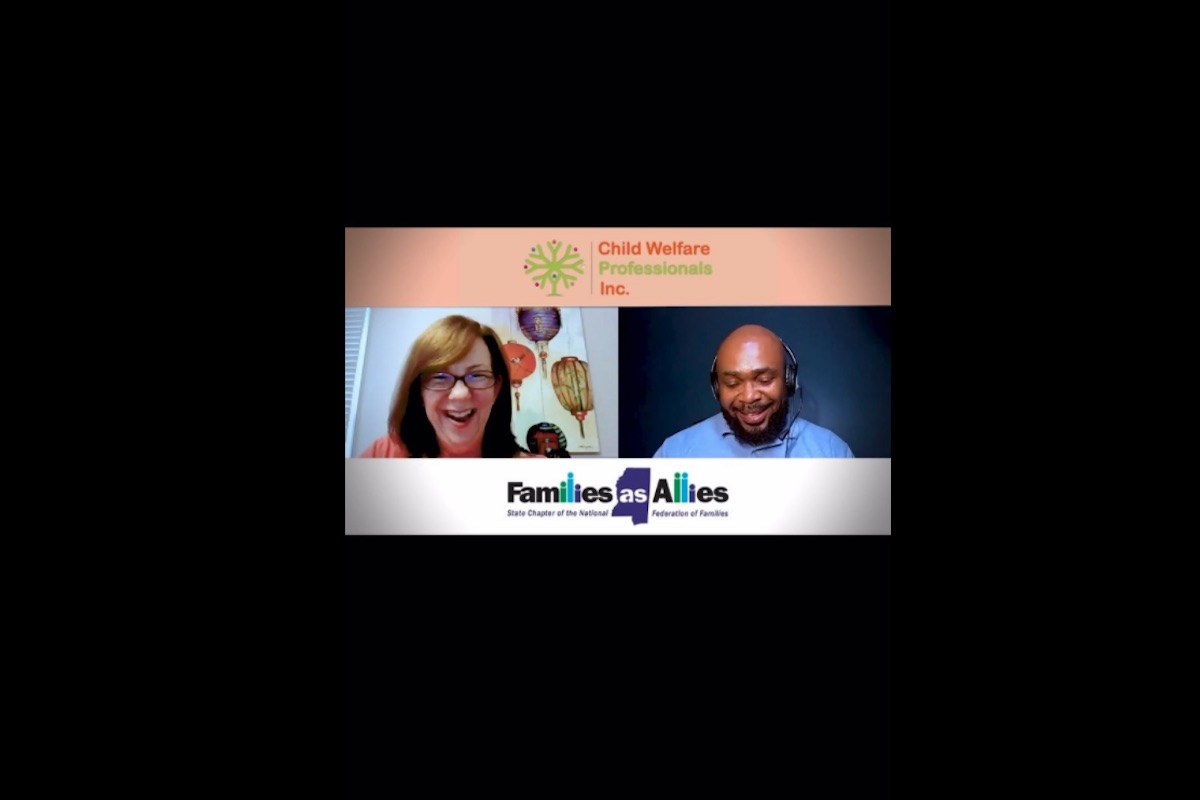Our executive director, Joy Hogge, sat down this past week with Valery Dambreville of Child Welfare Professionals, Inc., for an online conversation about Families as Allies and its mission, along with the lessons our organization has learned and been able to implement in response to the COVID-19 pandemic.
Joy started the discussion by telling Valery that Families as Allies is run by and for families. Families as Allies allows families to support each other and brings families together to make sure that systems and policies are responsive to the needs of children and families. Families as Allies is the state chapter of the National Federation of Families.
Families as Allies does a lot of coaching on the phone for families, to let them know what their rights and options are when they’re dealing with schools, healthcare providers and other systems. The group brings families together for training focused on mental health, development and the different systems and rights they need to know about.
“Our mission is that families are partners in their child’s care,” Joy said. “What that means is, the family is driving the car.” The family is the “expert” on the child and knows best what they want and how their family interacts. Providers and systems need to understand that expertise, and partner with them to make both child outcomes and systems better.
Families As Allies also does training for providers to help them understand this family-driven approach with families at the system level. Valery mentioned a training he’d attended at one point that emphasized the philosophy of “nothing about me without me,” meaning the person or family who is receiving services should be involved at every step of the interaction.
Valery asked Joy about how Families as Allies is able to work effectively during the COVID-19 pandemic, and she talked about the steps the organization has taken to increase access to resources (via a weekly newsletter and active Facebook page), move more training to ZOOM, and do things like hold virtual family support sessions on a regular basis. She noted that online training work well for a lot of mental health professionals, but some families still prefer one-on-one discussions on the phone and access to printed resources.
Joy made the point that the National Federation of Families was recently awarded the National Family Support Technical Assistance Center and offers resources for anyone in the country that includes not just children aged 0-21, but families with children of any age facing challenges with any system—they can be reached at FFCMH.org.
We would like to thank Valery Dambreville and Child Welfare Professionals, Inc., for the wonderful interview and opportunity to discuss our work in Mississippi.

